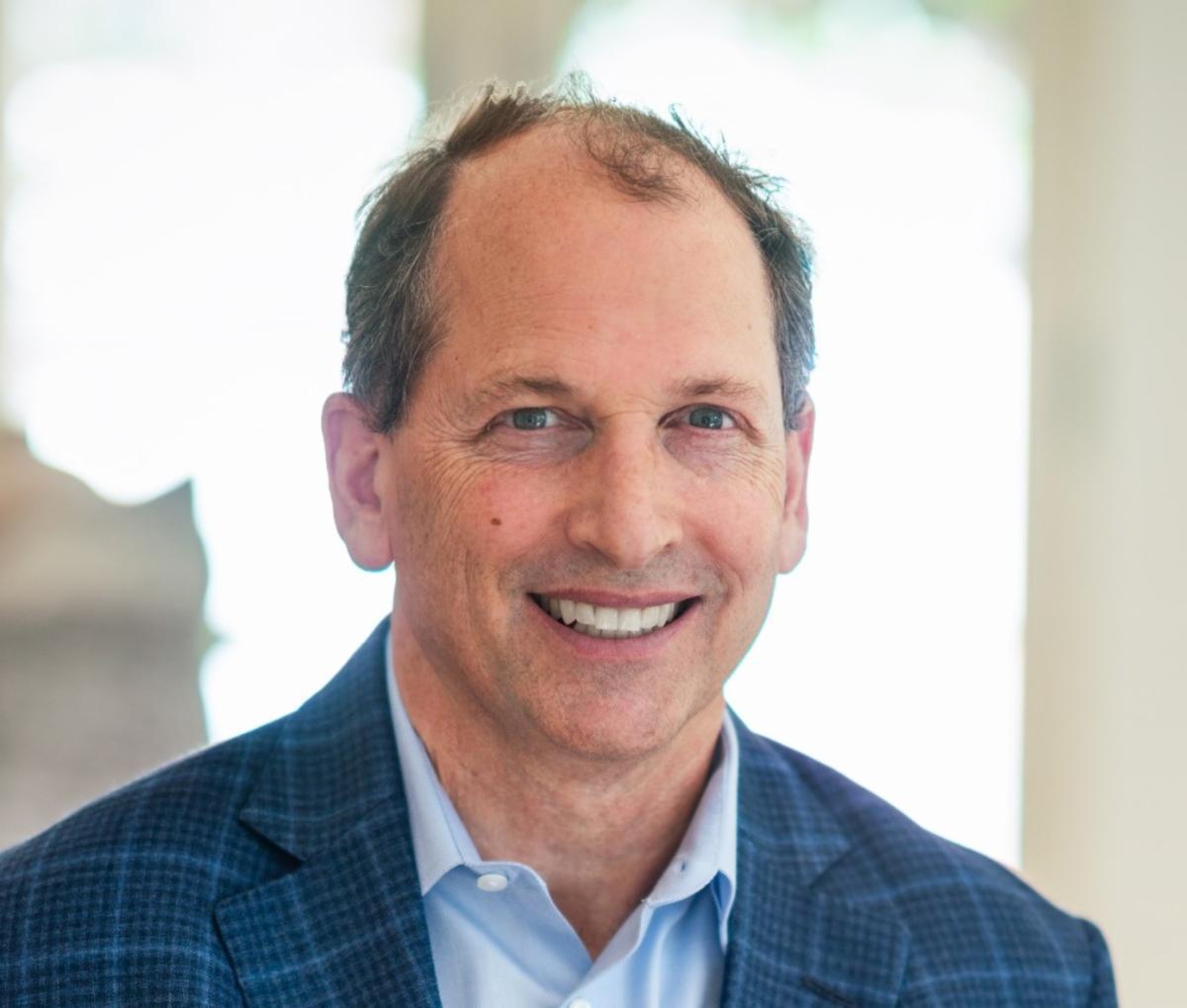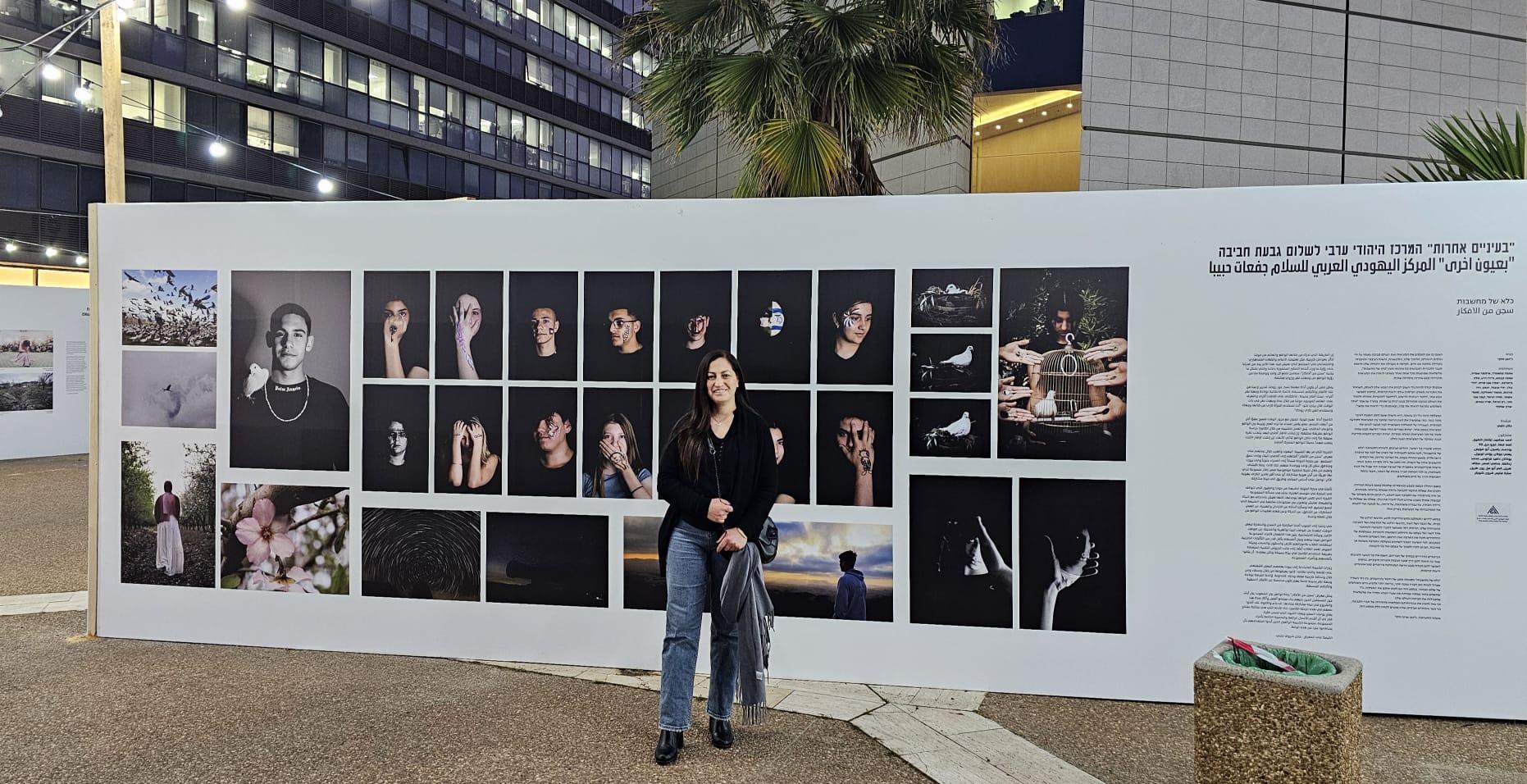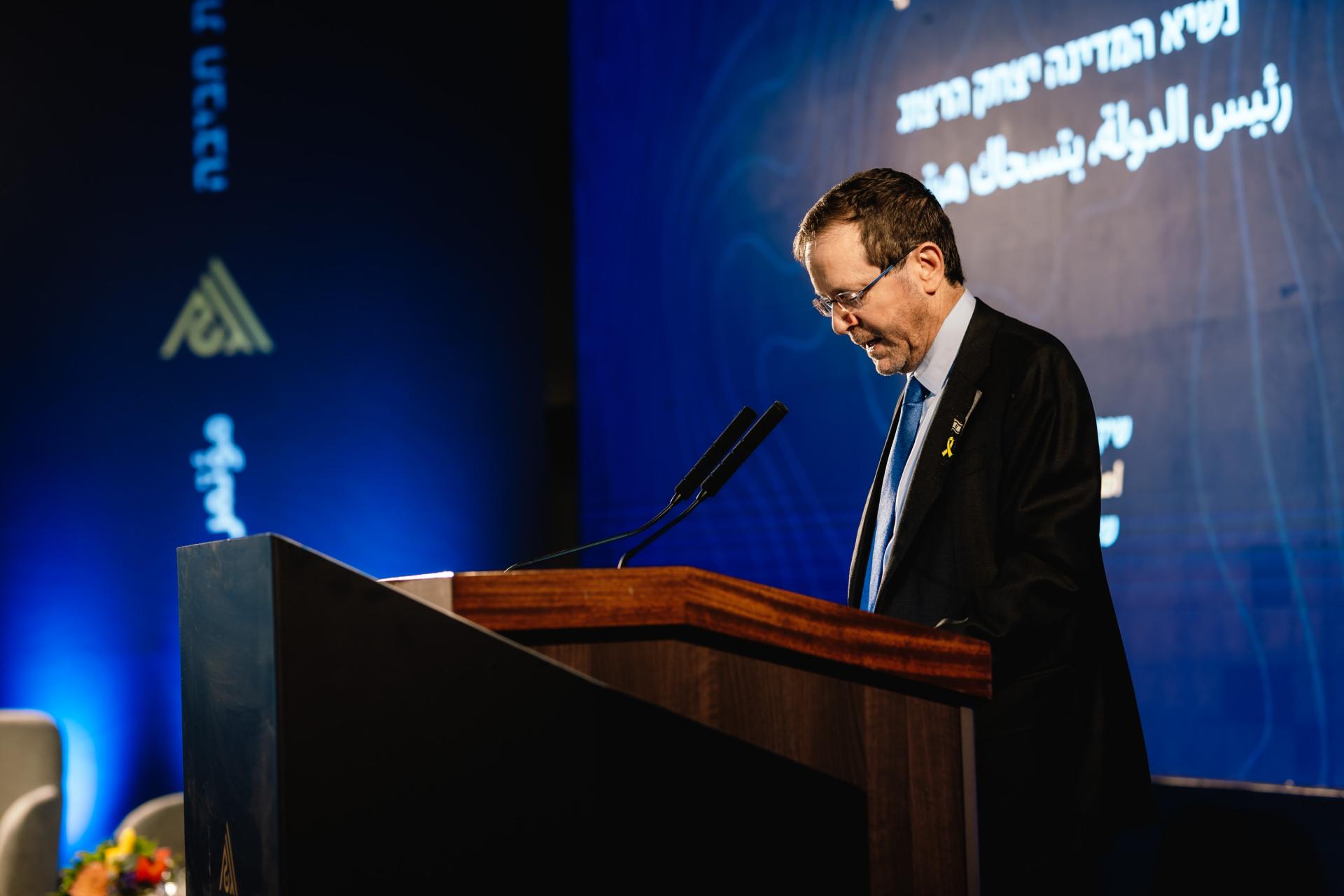Press
-
February 3, 2026
Art is the only language we speak. It's irrelevant where everyone came from
“Art is the only language we speak. It’s irrelevant where everyone came from,” Maariv, February 3, 2026 A group of eight Israeli artists, Jews and Arabs, from all over the country, gathered in Givat Haviva for three months of creatin and living together in one space. In advance of their closing exhibit, “No Space Between Us,” they spoke with Maariv about their experiences in the Givat Haviva Joint Center for the Arts residency program. “The participants put aside their lives, their homes, not work. They try very hard to get here, and everything takes them very much out of their comfort zone,’’ says Anat Lidror, director of the residency program and curator of the Givat Haviva Art Gallery. “They are in a different situation: a common society, a new place, new people and also a situation of developing a personal process. It’s a very exposed place, and many times we feel that we need to give them this space, to get to know each other. There is no better way to get to know each other than to live 24/7 together.”
-
 January 25, 2026
January 25, 2026OPED: Israel-Diaspora Partnering for Shared Society
Friends of Givat Haviva Executive Director Jonathan Lack, in his Times of Israel oped, urges Jewish and Arab citizens of Israel, and American Jews, to work together with to build a shared society.
-
 January 20, 2026
January 20, 2026Feature Story: Jenan Halabi Profile
Working with Jewish and Arab teenagers at Givat Haviva, Jenan Halabi has come to see photography as more than a skill or an art, but as a tool to open conversations about identity, belonging, and shared life—especially in moments when words fall short. “At first I came as a photography teacher, and from there I developed into something completely different,” Halabi says.
-
January 13, 2026
OPED: Voters Want Partnership
Givat Haviva CEO Michal Sella, in her Ynet (Yedioth Ahronoth) oped, Voters Want Partnership, argues in favor of Jewish political parties welcoming the support of Arab parties in elections this year. The Partnership Index, Givat Haviva’s annual survey of Jewish and Arab citizens, shows that 41% of centrist voters support the inclusion of an Arab party in the coalition government, and among supporters of the Netanyahu bloc of the Change bloc 43% support involving an Arab party. “Mathematically, ideologically, and morally, cooperation with the Arab parties cannot be ruled out, and every fifth Israeli should not be excluded from the political game. Centrist voters show that they are open to the idea, as do voters of the Change Bloc. They deserve leadership that knows how to count and, most importantly, how to lead,” Sella writes.
-
 January 6, 2026
January 6, 2026Herzog: Violent crime in Arab society a ‘national challenge,’ with inequality to blame
“Arab citizens of Israel are the flesh and blood of Israeli society,” President Isaac Herzog said in his address to the Givat Haviva conference on shared society. “They obviously deserve, by right and not by kindness, equality in the full sense of the word.” The president said that the absence of equality in Israel not only drives the burgeoning violence in Arab society, but also is to blame for a “missed opportunity on a historic scale.” “Arab society is perhaps the resource with the greatest potential, but on the other hand is the most unfulfilled, of the State of Israel,” Herzog said. “The issue of crime, delinquency and the loss of personal security in Arab society in Israel is a national challenge in every sense,” he said. The issue should be “occupying the thoughts” of Israel’s politicians day-to-day as a top priority. “The responsibility [for the issue] of the communities and Arab society itself of course has its place, but there is no replacement for the responsibility of the state.”
-
January 6, 2026
Arab Party Leaders Call to Form Joint List, Oust Netanyahu 'With Our Own Hands'
Two Arab party leaders, MK Ayman Odeh and MK Mansour Abbas, in their addresses to the annual Givat Haviva Conference on shared society, urged all Arab parties to unite ahead of the next election. “I call on the UAL, Balad and Hadash, let’s all unite,” said Hadash-Ta’al leader Odeh. “Let’s bring 17 seats and ensure with our own hands that Netanyahu is not elected again, and prevent Ben-Gvir and Smotrich from staying in office.” Odeh, who said he will not run in the next election,” said that “the struggle must be a general struggle of all citizens about the way we want to live in a democratic society.” Abbas, head of the United Arab List, who was the first Arab MK to serve in a governing coalition, called on the Arab parties to unite. “Those who want to join the coalition are welcome, and those who want to be a blocking bloc in the opposition , so be it.” Abbas also announced at the Givat Haviva conference that Jews conference that Jews will be able to run on the party’s list.